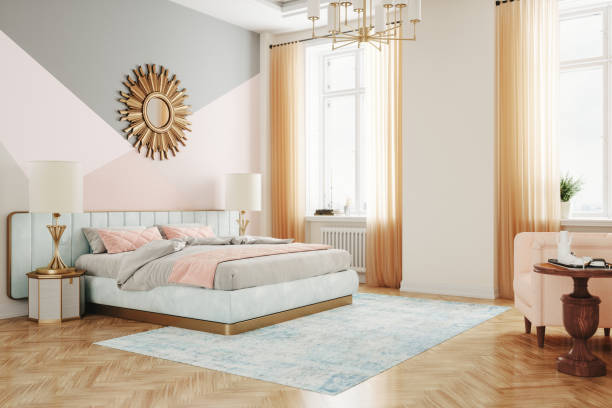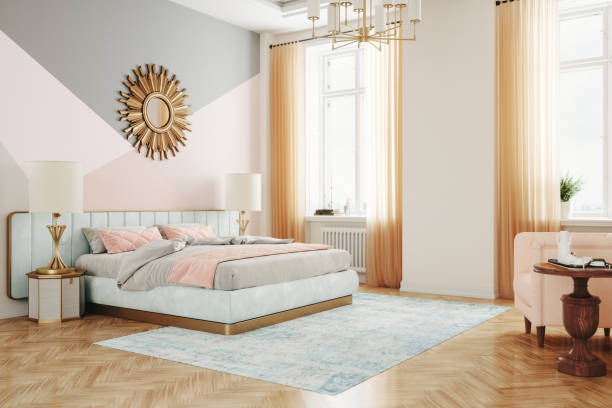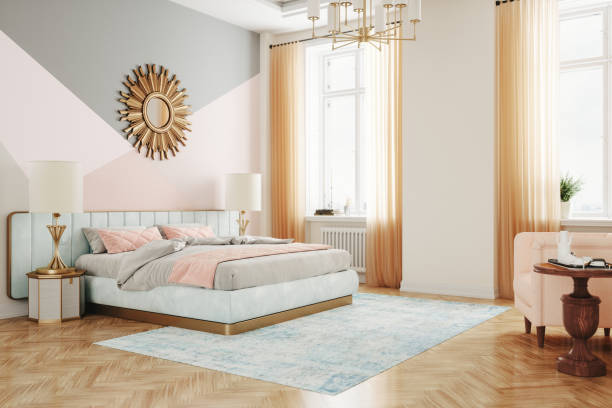Carpets and hard surface floors like wood, tile, and vinyl each have their own unique advantages and disadvantages when used as flooring in homes. When deciding between carpet or hard surface flooring, it is important to consider factors like cost, comfort, maintenance, health, durability, aesthetics and resale value.
Pros of Carpet Flooring
· Comfort and Warmth
Soft, padded carpeting is much more comfortable to walk and stand on barefoot than hard floors. Carpets also provide insulation, making rooms feel warmer in cold weather. This can help reduce heating costs during winter.
· Noise Reduction
Carpets are excellent sound absorbers, reducing noise from footsteps, voices and falling items within the home. This makes them a good choice for bedrooms, family rooms and media rooms. They allow people to walk around without creating a disturbance.
· Safety
Carpets provide much better traction than smooth, hard floors, so there is less risk of slipping and falling, especially for toddlers and the elderly. Rooms with carpets tend to have fewer accidents and injuries.
· Aesthetics
Carpets come in a vast array of styles, textures, patterns and colors, allowing for great design flexibility. They help create a warm, cozy ambiance that is difficult to replicate with hard floors. Many people find rooms with wall-to-wall carpeting more visually appealing.
Cons of Carpet Flooring
· Difficult Cleaning
While regular vacuuming keeps carpets looking their best, they will inevitably need periodic deep cleaning to remove built up dirt, oils, pollen and dust mites trapped deep in the fibers and padding underneath. Professional steam cleaning or shampooing is expensive and time consuming.
· Allergens and Dust
Carpets trap dust, pollen, soil and pet dander, which can aggravate allergies and asthma in sensitive individuals, even with frequent vacuuming. Mold and mildew growth in carpeting also poses health risks for some people.
· Less Durable
Although carpet technology has improved dramatically when it comes to stain, soil and moisture resistance, carpeting still tends to show wear patterns with foot traffic over time. High traffic areas and homes with children or pets experience the most issues with appearance decline.
· Replacement Needs
Even high-quality carpeting usually needs replacing eventually, typically after 7-15 years with average use. Replacement is costly, involves moving all furniture out of rooms and creates landfill waste. Some stains may necessitate partial repairs or spots replacements sooner when carpet is still in fairly good condition.
· Lack Moisture Resistance
Liquids accidents soak through carpeting into padding and subfloors. This can lead to odor issues, mold/mildew growth and flooring damage if not remediated quickly and thoroughly by professionals. Berber styles with thick looped fibers have the lowest liquid resistance.
Pros of Hard Surface Floors
· Easier Maintenance
Hardwood, vinyl planks, tiles, stone and laminates can be swept, vacuumed and damp mopped to keep clean. Porcelain and ceramic tile offer the best stain and moisture resistance. Professional refinishing and resealing hardwood help keep floors looking like new for decades.
· Improved Health
Hard floors harbor fewer dust mites, pet dander and allergens than carpeting. This creates a healthier indoor environment, especially beneficial for children and adults suffering from allergies, asthma or respiratory issues.
· High Durability
Materials like traditional hardwood, ceramic and natural stone last for generations with proper maintenance. Vinyl and laminates stand up very well to heavy residential foot traffic. Hard floors retain their original appearance much longer than carpet before replacement becomes necessary.
· Moisture Resistance
Accidental spills, pet accidents and high humidity are problematic on carpeting. Hard floors resist water penetration and won't support mold or mildew growth, minimizing structural damage. Most messes are easily wiped up. Area rugs provide warmth and softness.
· Higher Resale Value
Upgraded hard flooring types add monetary value to homes compared to wall-to-wall carpeting, according to real estate agents and appraisers. They also tend to give rooms a cleaner, more sophisticated look which appeals to potential home buyers.
Cons of Hard Surface Floors
· Harder Feel
Tile, stone, laminates and hardwood provide no cushioning or insulation. Without area rugs, standing or walking on these floors for long periods leads to foot discomfort and fatigue. Risk of slipping increases as floors become wet or dusty.
· Echo Noise
Sound bounces off smooth hard surfaces, creating loud echoes in large, open floor plan rooms. Footsteps, voices and other noises radiate easily throughout hard floor homes. Additional rugs and sound-absorbing furnishings become necessary.
· Price
Natural stone, slate, marble, exotic hardwoods and ornate tile cost more upfront than carpeting or vinyl. Professional installation of these delicate materials is recommended, further adding expense. Imported varieties fluctuate widely in price due to trade factors.
· Susceptible to Damage
Solid hardwood flooring and natural stone can easily become scratched, gouged and cracked by heavy furniture movement or active children and pets unless cared for properly. Liquid spills left untreated also ruin the finish appearance. Ongoing resealing is necessary.
Final Words
As you can see, carpet and hard floor surfaces both provide benefits in terms of aesthetics, comfort, health, maintenance and costs. Prioritizing personal lifestyle factors like allergies, moisture issues, pets and desire for ease of cleaning should drive any flooring decision. Many homeowners choose a combination, installing hardwood, tile or vinyl in high traffic areas and carpet in bedrooms for the best of both options. With regular upkeep, quality flooring of either type adds functionality, design coherence and value to living spaces for many years.
Are you looking forward to buying new carpets? Then you are at the right place. Instant £600 carpet credit available now from Pay As You Go Carpets! Invest in new flooring then pay weekly with just £10 installments.




